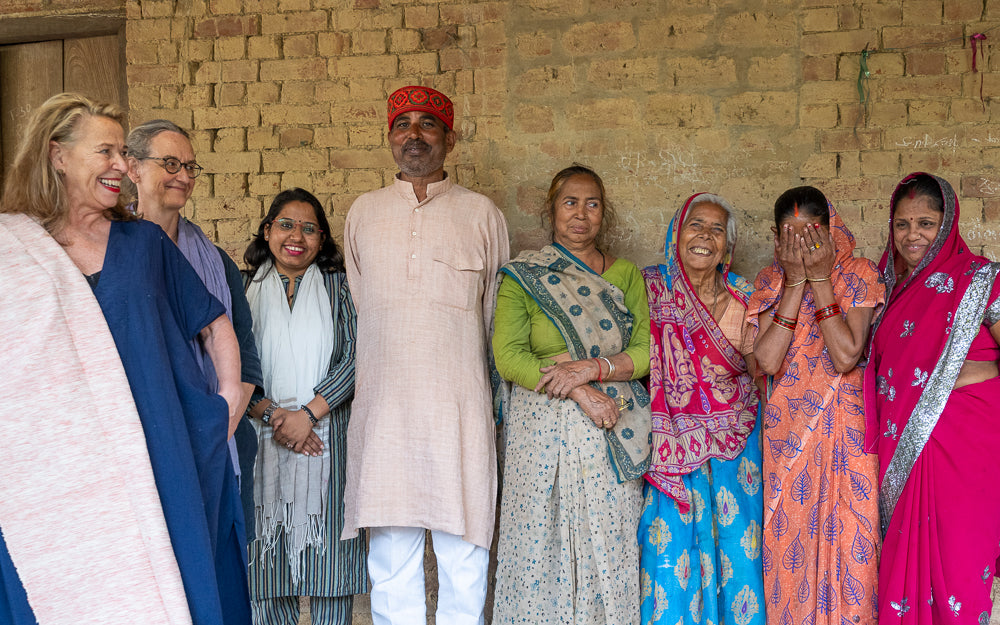Transparent, social and environmentally friendly Khadi cotton



Richa, founder of SPOKKS (sitting on the left) next to Sandra (Via India) and the cotton spinners Suneeta and Meera with 2 of their daughters.

With the semi-mechanical ambar charkha women produce very fine cotton thread, suitable for light summer fabrics. They do this with the cotton yarn that has already been spun on the small kisan charkha as a basis